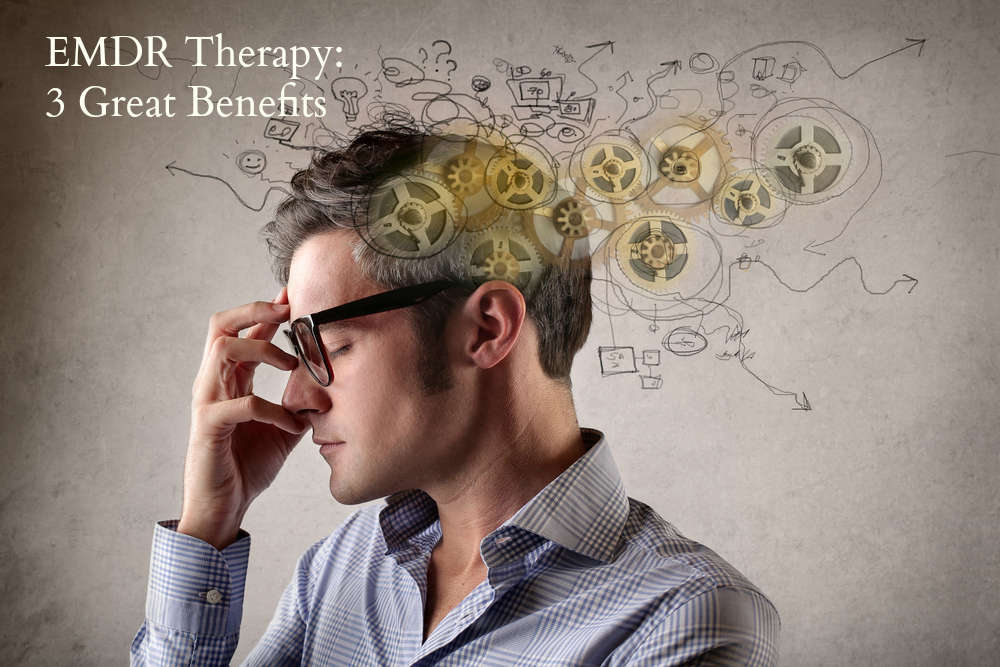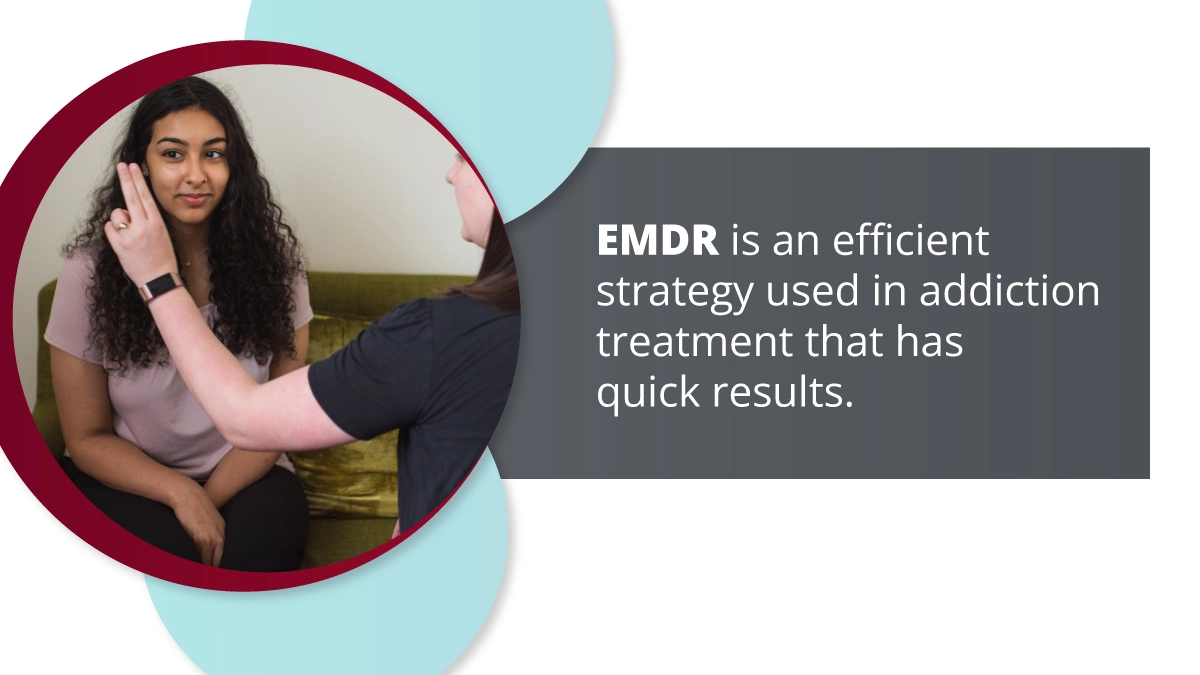Exploring proven outcomes of best emdr therapy in nyc for emotional growth
Comprehending EMDR Therapy: Exploring Its Advantages and Advantages for Psychological Wellness
EMDR therapy has emerged as a noteworthy technique in the domain name of psychological health, particularly for those grappling with injury. Its organized approach of processing distressing memories sets it in addition to conventional therapies. The prospective improvements it provides for different emotional difficulties warrant closer exam. As people seek reliable services for their psychological wellness, understanding the nuances of EMDR may offer essential understandings into its benefits and applications. What exists beneath its restorative guarantee?
What Is EMDR Treatment?
Eye Movement Desensitization and Reprocessing (EMDR) therapy is a structured method designed to relieve the distress related to stressful memories. Established by Francine Shapiro in the late 1980s, EMDR incorporates components of cognitive-behavioral therapy with bilateral excitement, usually with led eye motions - emdr therapy new york city. The treatment aims to assist individuals procedure and reframe distressing experiences, reducing their psychological fee and effect on day-to-day life
Throughout EMDR sessions, customers recall distressing memories while at the same time involving in particular bilateral excitement strategies. This dual emphasis is believed to promote the mind's all-natural recovery processes, enabling for the integration of disrupted memories. EMDR is often used to deal with problems like post-traumatic anxiety disorder (PTSD), stress and anxiety, and anxiety. Its organized nature and adaptable framework make EMDR obtainable to a varied variety of customers, offering hope and alleviation from the burdens of unsolved trauma.
The Science Behind EMDR
Recognizing the devices underlying EMDR treatment reveals a remarkable interaction in between neurological actions and emotional processes. Research suggests that EMDR turns on the mind's information handling system, assisting in the combination of stressful memories. This procedure appears to involve the bilateral excitement commonly utilized in EMDR, which can assist re-shape neural paths related to traumatic experiences.
Studies have shown modifications in brain activity patterns throughout EMDR sessions, particularly in areas associated with psychological policy, such as the amygdala and prefrontal cortex. These changes recommend that EMDR might decrease the psychological charge of traumatic memories, consequently allowing individuals to refine their experiences much more adaptively.
In addition, neuroimaging studies highlight changes in the default setting network, which might play a role in exactly how people connect to their memories. Overall, the scientific exploration of EMDR emphasizes its possible effectiveness in promoting psychological wellness via a complicated interaction of cognitive and neurological devices.
Just How EMDR Works: The Refine Explained
While lots of therapeutic approaches focus on spoken processing, EMDR uses a distinctive technique that incorporates bilateral excitement to help with recovery. The procedure starts with the specialist assisting the customer determine distressing memories or ideas. When these targets are established, the therapist overviews the customer through a series of eye movements or other kinds of bilateral excitement, such as tapping or acoustic hints. This excitement is thought to help in processing the memories, permitting the brain to recycle traumatic experiences more adaptively.
Throughout the sessions, clients might experience a variety of emotions and insights as they face their memories. The specialist maintains a supportive setting, guaranteeing the customer feels safe during the procedure. After the stimulation, the therapist helps the customer mirror on any modifications in their ideas or sensations pertaining to the targeted memories. This structured strategy intends to decrease the psychological charge connected with trauma, advertising a much healthier mindset.
Benefits of EMDR for Trauma Recuperation
EMDR treatment provides significant benefits for people recuperating from injury. It assists in an increased healing procedure, assisting clients procedure stressful memories a lot more effectively. Furthermore, it minimizes emotional distress and boosts dealing skills, empowering individuals to handle their experiences better.
Accelerated Recovery Process
As people seek effective techniques for conquering injury, the sped up recovery process supplied by EMDR treatment attracts attention as a transformative strategy. Unlike conventional restorative techniques that may take years to yield results, EMDR promotes rapid handling of terrible memories. This method allows clients to confront and incorporate unpleasant experiences in a structured manner, frequently leading to developments within a few sessions. The bilateral excitement integral in EMDR helps to desensitize people to traumatic memories, advertising a feeling of safety and security and control. Clients often report significant reductions in trauma-related signs. By accelerating the recovery trip, EMDR empowers people to reclaim their lives and progress with renewed strength and hope, making it a beneficial option for injury recuperation.
Lowered Emotional Distress
Psychological relief comes to be possible via the application of EMDR therapy in trauma recovery. This therapeutic technique helps with the handling of stressful memories, which commonly add to frustrating emotional distress. By using bilateral excitement, EMDR allows customers to accessibility and reframe upsetting experiences, reducing their psychological cost. As people involve with their memories in a safe setting, they might experience a considerable decline in depression, anxiety, and fear related to past traumas. Furthermore, EMDR advertises a feeling of safety and empowerment, enabling individuals to face their emotions without coming to be overloaded. As an outcome, clients often report an enhanced emotion, promoting resilience and a more well balanced viewpoint on their lives. This decrease in emotional distress is a crucial benefit of EMDR therapy.
Boosted Coping Skills
While injury can leave individuals feeling helpless, EMDR treatment furnishes them with improved coping abilities that help with durability and individual development. By dealing with the origin causes of distress, EMDR assists customers recognize and develop reliable strategies to manage their emotional feedbacks. These coping abilities consist of mindfulness, basing techniques, and emotional policy, which equip individuals to navigate challenging scenarios with greater convenience. As customers progress via EMDR treatment, they learn to reprocess traumatic memories, changing their perceptions and minimizing sensations of anxiousness and vulnerability. This newfound ability to cope not only help in trauma healing but additionally boosts total psychological wellness, leading to improved connections and a more satisfying life. Ultimately, EMDR fosters a feeling of company that supports long-term psychological wellness.
EMDR and Its Effectiveness for Anxiety and Clinical depression
EMDR therapy operates the concept of bilateral excitement, which might assist patients process and reframe distressing memories linked to anxiousness and anxiety. Research study indicates appealing scientific success prices, suggesting that EMDR can be a reliable intervention for these mental wellness problems. Recognizing the hidden devices and results of EMDR offers understanding right into its healing capacity.
System of EMDR
Many research studies have demonstrated the efficiency of Eye Movement Desensitization and Reprocessing (EMDR) therapy in dealing with anxiety and depression. The mechanism of EMDR includes bilateral stimulation, generally with led eye movements, which assists in the processing of traumatic memories. This dual focus enables individuals to reprocess stressful experiences while preserving a concentrate on the here and now, decreasing psychological disturbance. EMDR intends to incorporate fragmented memories, lessening their adverse emotional impact. Through organized stages, the therapy aids have a peek at this website clients reframe their assumptions, cultivating flexible beliefs concerning themselves. This procedure not only relieves signs and symptoms of anxiousness and clinical depression yet also enhances psychological regulation, leading to boosted psychological health. On the whole, EMDR's one-of-a-kind approach offers read this article a thorough structure for healing mental distress.

Scientific Success Prices
Research suggests that EMDR therapy has actually shown impressive success rates in reducing signs of anxiousness and depression. Numerous studies have actually shown that people undertaking EMDR commonly experience substantial reductions in traumatic signs within a fairly brief duration. For instance, a meta-analysis disclosed that EMDR is as reliable as standard cognitive-behavioral treatment for dealing with both anxiousness and clinical depression. On top of that, some clients report improvements after just a couple of sessions. EMDR's performance is credited to its distinct strategy, which assists reprocess traumatic memories, bring about lowered psychological distress. Clients often express high contentment with their treatment results, noting boosted emotional policy and overall wellness. This evidence sustains EMDR's growing acknowledgment as a valuable restorative option for mental health professionals.
Locating an EMDR Therapist: What to Consider
When looking for an EMDR therapist, what vital aspects should one consider to guarantee a good fit? Initially, it is important to confirm the therapist's certifications and credentials, ensuring they are trained particularly in EMDR treatment. This training ought to be backed by recognized accreditations from trusted companies
Next, consider the specialist's experience, especially with cases similar to one's very own. Various therapists may have differing areas of emphasis and experience, which can considerably impact the healing procedure.
One more essential aspect is the therapist's method and design. A good connection and comfort degree in between the client and specialist are important for reliable treatment.
Additionally, useful factors to consider such as session, place, and accessibility prices need to not be forgotten. By carefully examining these elements, individuals can make enlightened options in their search of EMDR treatment, enhancing their possibilities for effective mental health outcomes.
Frequently Asked Questions
Can EMDR Therapy Be Utilized for Adolescents and youngsters?
Yes, EMDR treatment can be successfully used for children and teens. Study suggests that it helps in processing traumatic experiences, helping more youthful individuals create dealing methods and enhance psychological policy in a helpful atmosphere.
How Lengthy Does an EMDR Treatment Session Generally Last?
An EMDR therapy session usually lasts between 60 to 90 minutes. The period may vary based upon private demands and healing goals, making sure that each session properly resolves the client's details experiences these details and challenges.
Is EMDR Therapy Covered by Insurance Strategies?
EMDR therapy protection varies by insurance coverage plan. Some plans include it as component of mental health and wellness advantages, while others might need certain standards to be fulfilled. People ought to consult their insurance coverage company for comprehensive information.
Exist Any Kind Of Negative Effects of EMDR Treatment?

The Number Of Sessions of EMDR Treatment Are Generally Needed?
Usually, individuals might call for anywhere from 6 to twelve sessions of EMDR treatment, depending upon the intricacy of their injury and personal progress (emdr therapy new york city). Some might require additional sessions for deeper concerns or continuous assistance
Eye Movement Desensitization and Reprocessing (EMDR) treatment is a structured strategy developed to relieve the distress associated with stressful memories. Emotional alleviation becomes possible via the application of EMDR therapy in injury healing. As clients progress via EMDR therapy, they discover to recycle stressful memories, transforming their assumptions and decreasing feelings of stress and anxiety and vulnerability. EMDR treatment runs on the principle of bilateral excitement, which might help people procedure and reframe upsetting memories linked to anxiousness and depression. EMDR treatment might lead to momentary side results such as raised emotional distress, vibrant memories, or physical pain throughout sessions.